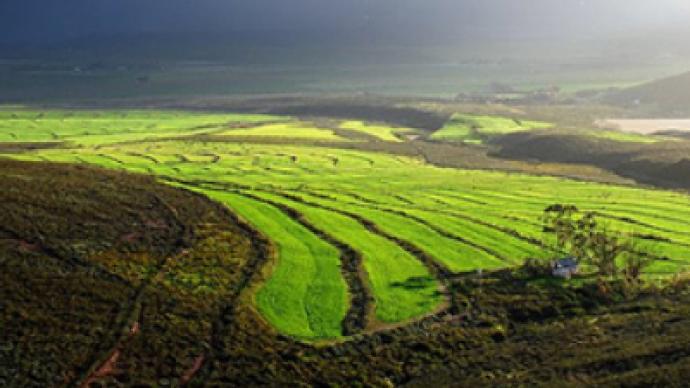Migration to South Africa— is it a dream?

Masses of Africans illicitly arriving in South Africa have raised concerns about human trafficking. However, evidence has revealed they are merely men in pursuit of dreams — dreams with extreme costs and disappointments.
There are many routes to South Africa for illegal migrants, but few of them are easy. Most run through various countries and terrain and involve difficult modes of transportation, including old fishing boats, containers and by foot.
After most of his family was killed, Dasta Wandeimu left Ethiopia on foot.
“For two years I am running,” he says. “First three months, I am on foot to Kenya. “No transport. No money.”
In Kenya, he found that there was no refugee system. So, he had to continue as an illegal migrant. “No passport. No nothing.”
From country to country, he traveled through Uganda, Rwanda, Burundi, Tanzania, Malawi and Zimbabwe. Dasta says there were over 100 Ethiopians and Somalians traveling with him. They slept outside, begged, went to churches asking for food – and walked.
“I sold my shoes to eat,” he says. “It was the church who gave me clothes and new shoes. But always I’m running. Usually at night. If you could see inside my socks [at] that time, you will be crying,” he said.
Tens of thousands of men are estimated to leave East Africa and the Horn of Africa every year— by choice. These men desperately seek better lives or plan to use South Africa as a stepping stone to the first world.
In order to achieve their dreams, many pay human smugglers and must withstand the additional harsh conditions associated with being human cargo.
“I was physically and emotionally abused by the smugglers, police and transport operators. We were kicked, beaten, starved and robbed by the very people that we paid so much money to. If there were ever human rights, ours were breached all along the way,” a 22-year-old Somalian said in an interview published in a recent report from the International Office of Migration (IOM).
Another Somalian claims he was one of 250 migrants transported in a container. About an hour into the journey, people began suffocating, he said. But the doors were only opened again the following morning. Many people were unconscious. Three died. Some were hospitalized and others were taken to prison.
Some men never make it to South Africa. Others try several times, and are either abused and returned, or sentenced to prison and made to pay for freedom before they finally reach their destination.
One Ethiopian in the IOM report said that, when he was a single border away from South Africa, in Mozambique, police arrested his group and demanded that they pay. After the officers had taken all of their money and clothes, the police took them to a non-South African border and ordered them to go back.
Despite their treatment, their sacrifices and the harsh conditions, the men are rarely deterred. Driven by factors including poverty, war and a desire to provide better lives for their families, many men interviewed by the IOM admitted that, “they will repeatedly retry if their initial attempts fail.”
The IOM concludes that unless genuine efforts to deal with the root causes are made, there is little likelihood that any solutions will curb the flow.
These migrants sincerely believe that if they can just make it to South Africa, they will have arrived at the gateway to their dreams. Usually, their goal is to enter illegally, then use the asylum process to secure the right to stay.
But Dasta is a living example that represents the reality of many. Instead of a dream life, refugee status has earned him a shack in a place he says is “too dangerous.”
“Now it is winter. The wind that comes through is too much. There, we are two.” The rent, which he splits with another Ethiopian, is $175. His monthly salary from a shelving company is only $150.
“I am working 5 days. 12 hours a day. Many times I am eating only bread and coke. The money I am making is not enough for me.”
“My country is nice, but there they are killing. Here, I am suffering. If you help me, you will find God,” he says.
Michelle Smith for RT














